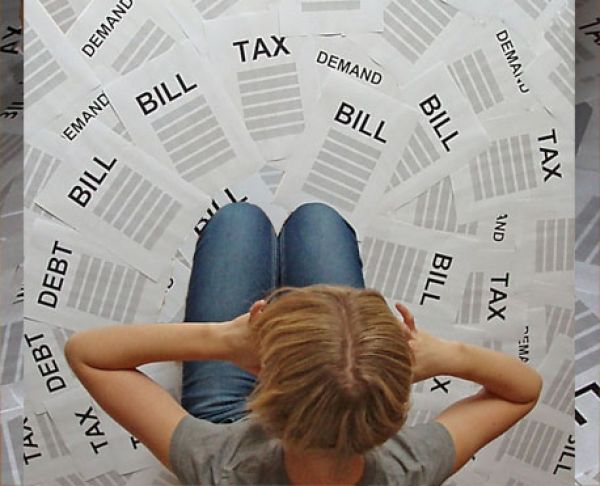Taking a Loan After Filing for Bankruptcy
Choosing to file for bankruptcy might be one of the hardest financial choices you will ever have to make, but it might also be your best option if you face severe financial troubles. Declaring bankruptcy not only gets rid of your outstanding debts and stops those pesky calls from collection agencies, but it also helps provide you with a fresh financial start.
If you are thinking about obtaining a personal loan to help rebuild your credit after a bankruptcy, there are a few things you should know.

Re-establish Credit Before Applying for a Personal Loan
It’s a good idea to work on rebuilding your credit for at least six months before you apply for a personal loan. Many people start off with a small, secured credit card from a local bank or credit union. Secured credit cards are one of the easiest types of credit to obtain because it poses little risk to the lender.
Simply make a deposit with the credit card issuer and you will receive a credit limit equalling the amount of your deposit. Before making a deposit for a secured card, make sure the issuer reports your credit activity to all three of the major credit bureaus.
Make it a point to pay all of your bills on time. If you want to build your credit up to the point where you can get a personal loan, then you cannot afford to be late or delinquent on any credit card payments. You can improve your credit score even faster if you pay off any balance in full every month.
Secured and Unsecured Loans
After spending at least six months improving your credit history, it might be time to apply for a personal loan. The two primary types of personal loans are secured and unsecured loans.
Secured personal loans require some type of collateral, typically property or cash. If you cannot pay back a secured loan, then the lender gets to keep the collateral. Secured loans typically come with lower interest rates and longer repayment periods than unsecured loans, but you must be sure that you can pay it back or you risk losing your collateral.
Unsecured personal loans do not require any type of collateral, which works out better for those who don’t own property or don’t want to borrow against their homes. If you default on an unsecured loan, however, the lender is allowed to collect their money through various garnishments in many states.
Personal Loans for People With Bad Credit
Your best bet is to start looking for personal loans with your local bank or credit union. You can also shop around online for “bad credit” personal loans. Rates and requirements vary, but avoid taking out any loan from a company that charges a high interest rate and hefty fees.
Unfortunately, a bankruptcy can remain on your credit report for ten years from the filing date and many lenders will be a bit hesitant to offer you new lines of credit at first. Fortunately, the financial gurus at MoneySupermarket.com report that you can start rebuilding your credit before those ten years are over.
Article submitted by Karl at MoneySupermarket.com

